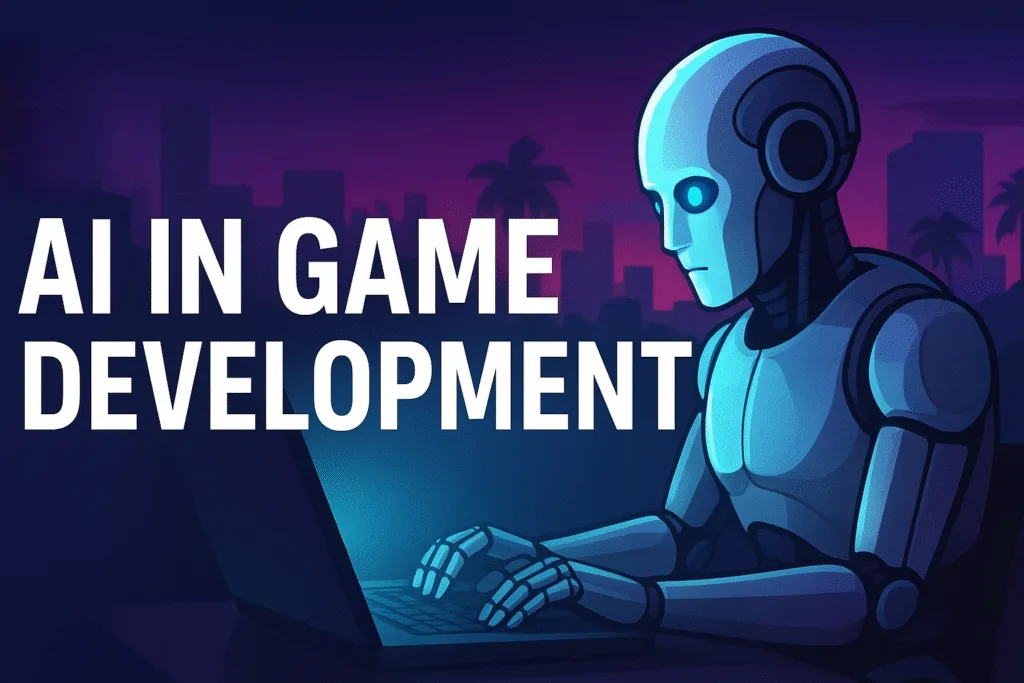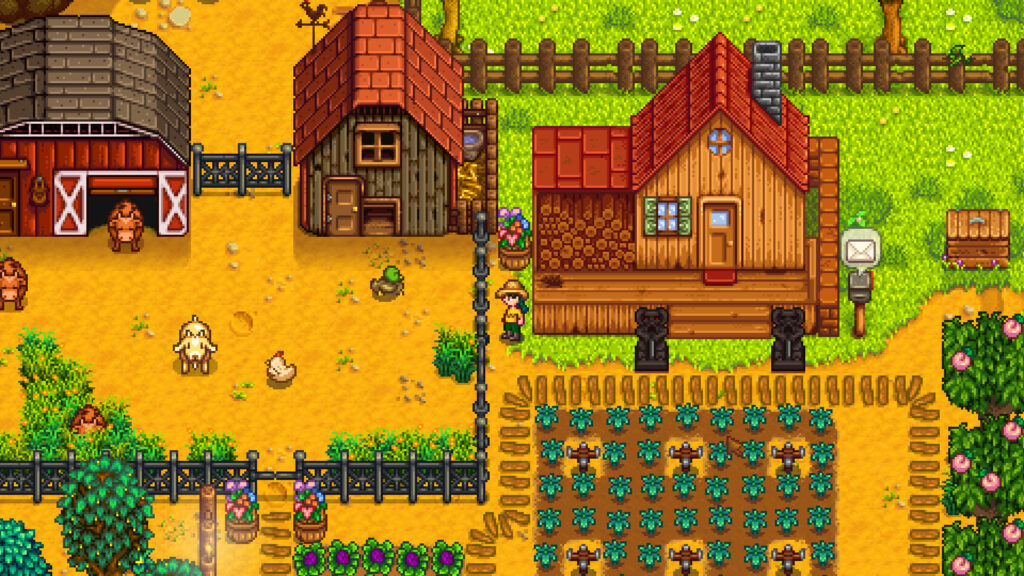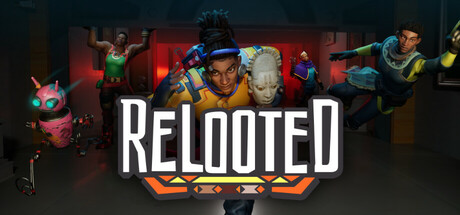
When I think about the future of games, one of the biggest shifts happening right now is AI in game development. It’s no longer a sci-fi fantasy. It’s real, it’s in production pipelines, and it’s forcing the industry to rethink how we design, build, and ship games. In this article, I want to walk through what this means: how generative AI in games is speeding things up, the question of whether AI can reduce game production time, how this shakes up roles (and fears of will AI replace game developers), and what it might mean for big titles like Grand Theft Auto VI.
Why the transformation matters
Production cycles for big games are longer than ever, budgets keep rising, and teams can stay in development limbo for years. Consequently, AI in game development begins to look like a lifeline. For example, a recent survey shows that over 79% of game developers view AI tools positively. Moreover, over half of studios are now using generative tools for art, narrative, or design workflows. In other words, the technology is moving from “nice to try” to “we have to adapt to keep up.”
What’s actually changing: tools, techniques, workflows
One of the biggest shifts is the rise of AI content creation for games. Studios now use generative AI in games to build visual assets, textures, audio, and even full levels. In 2025, about one in five new Steam releases disclosed some form of AI use. At the same time, AI is creeping into code and design. Automating NPC behavior, world-building, and repetitive QA testing. The result is clear: how AI speeds up game production is finally measurable. Some reports show that AI-assisted design cuts project time by roughly 20%. Faster assets, quicker testing, fewer bottlenecks. All of it pushes studios toward shorter, less risky production cycles.
Big names, subtle impact: the Grand Theft Auto angle
You may be wondering: how does this affect blockbuster stuff like Grand Theft Auto VI? While there’s no full public breakdown of “AI built this level” for GTA VI, it’s safe to assume major studios are quietly experimenting. With AI in game development becoming common, large franchises are under pressure to adopt or fall behind.
For example, as tools mature, features like smarter NPCs, dynamically generated dialogue, or environments built with procedural systems may push into these big-budget titles. That means the next GTA might not just be bigger, the production rhythm itself might change.

The flip side: will AI replace game developers?
Here’s where things get tricky. On one hand, the efficiencies brought by AI in game development are undeniable. On the other hand, developers are worried. According to the Game Developers Conference 2025 report, about 30% of respondents believe generative AI is hurting the industry.
There are fears of job displacement, especially junior roles, concerns about quality (can AI match human depth?), and ethical issues like intellectual-property and attribution. One senior voice in the industry said, “We should use generative AI to help people be faster at their jobs, not lose them.”
So yes, AI game design is gaining ground, but replacing creative talent wholesale? That seems far off, and many in the field seem to agree.
Practical use-cases
Here are a few concrete ways studios are already using these tools:
- Mobile game studios are using AI to automate level design, allowing teams to release new content faster.
- In Japan, over half of surveyed game companies rely on AI for tasks like visual asset creation and in-house engine support.
- QA and iteration processes benefit from AI tools that reduce errors and speed up testing, showing exactly how AI speeds up game production.

What to watch and what it means for creators
- Tool maturity vs. hype: Some industry veterans are skeptical. For example, one veteran said claims of “fully AI-generated game in a year” are overblown.
- Creative authenticity: As generative AI becomes embedded, studios will need to decide how much they trust it with narrative, character, emotion, areas traditionally human.
- Workforce shifts: While AI may free humans from grunt work, it also demands new skills: prompt-crafting, oversight of AI output, hybrid workflows.
- Disclosure and player trust: Transparency around AI content (especially generative) is becoming more important. Some platforms now require disclosure if generative AI was used.
My take: what this means for the next 3-5 years
I believe that AI in game development will become the norm, not the exception. It won’t replace human creativity, at least not yet, but it will shift what humans do. Think fewer hours spent on dragging assets, more time spent iterating, more room for imaginative risk.
If developers embrace it, we could see faster production, more ambitious worlds, and smaller studios punching above their weight. If they resist, the studios that adapt may simply pull ahead by volume and speed.
And for players, this could mean more content, more frequent updates, and maybe even smarter worlds that respond to how you play.
References
- GDC 2025 State of the Game Industry Report – Survey on AI adoption and developer attitudes.
- Steam 2025 Generative AI Stats – Analysis showing AI use in 1 in 5 new Steam games.
- AI in Video Game Industry Statistics – Zipdo – Data on productivity gains from AI in game design.
- AP News: Mobile Game Development and AI – Examples of AI speeding up level design and asset creation.
- PC Gamer: Japanese Studios Using AI – Survey of AI adoption in Japanese game companies.
- Hideo Kojima on AI in Development – GameRadar – Using AI for tedious tasks while keeping creative control.
- Elon Musk xAI Game Claim Response – PC Gamer – Commentary on hype vs. reality of fully AI-generated games.


